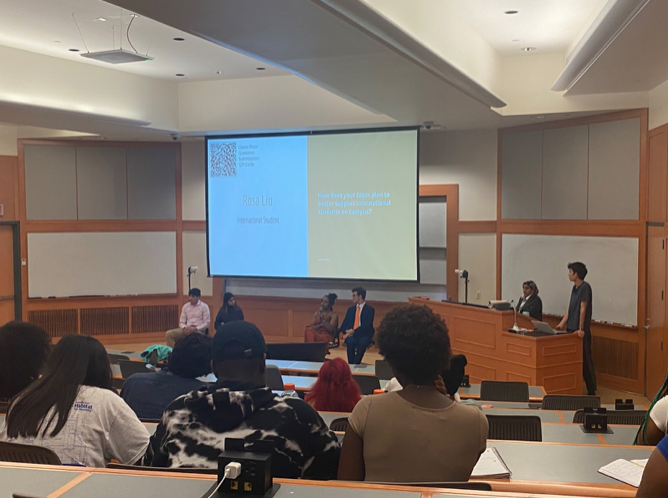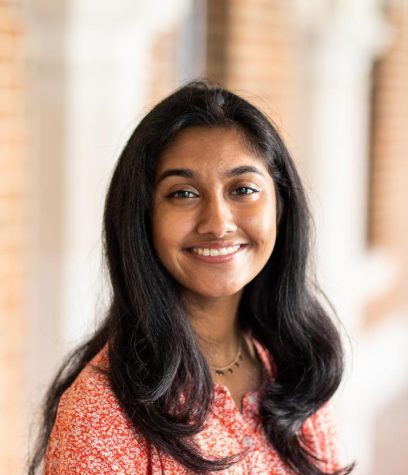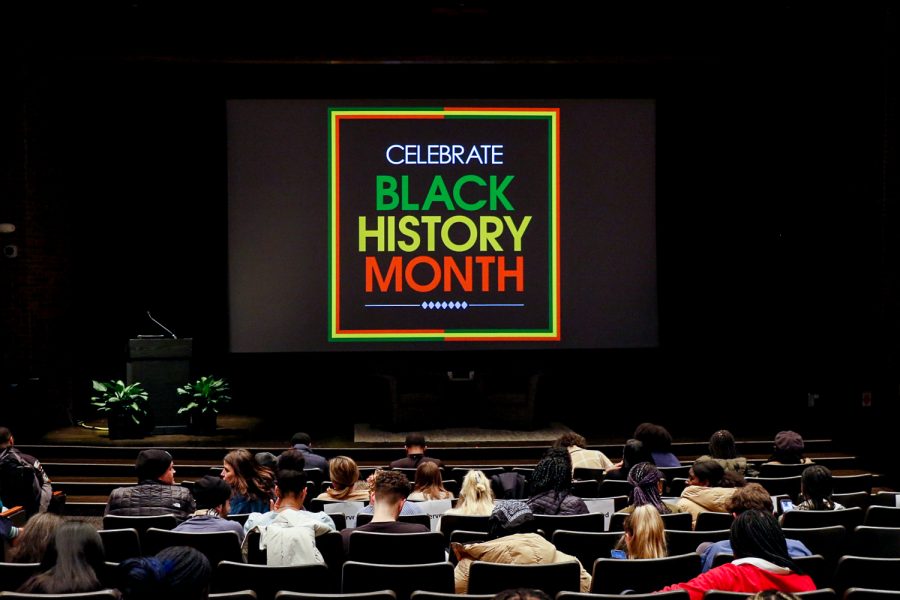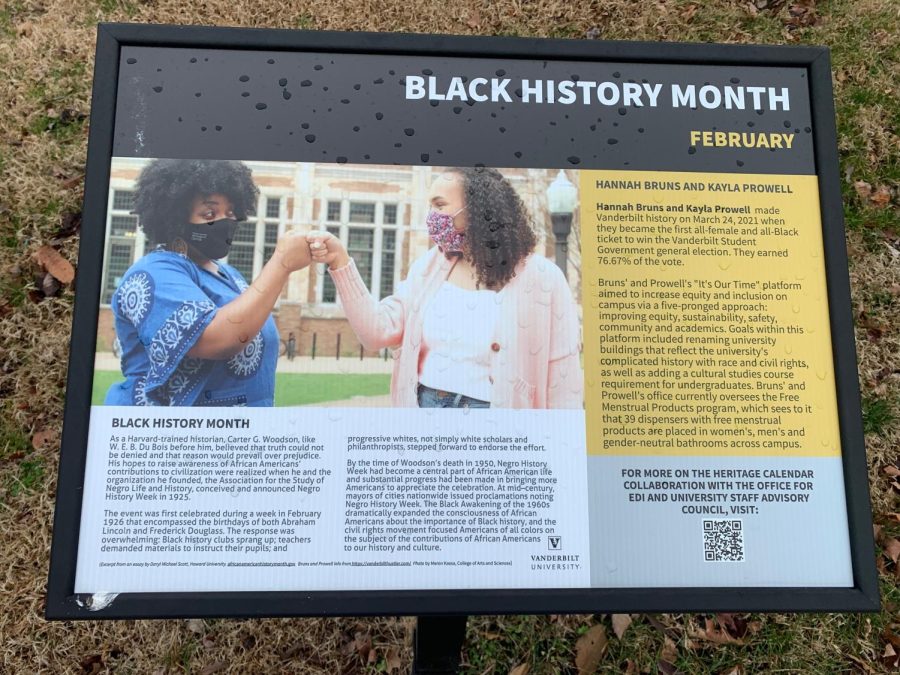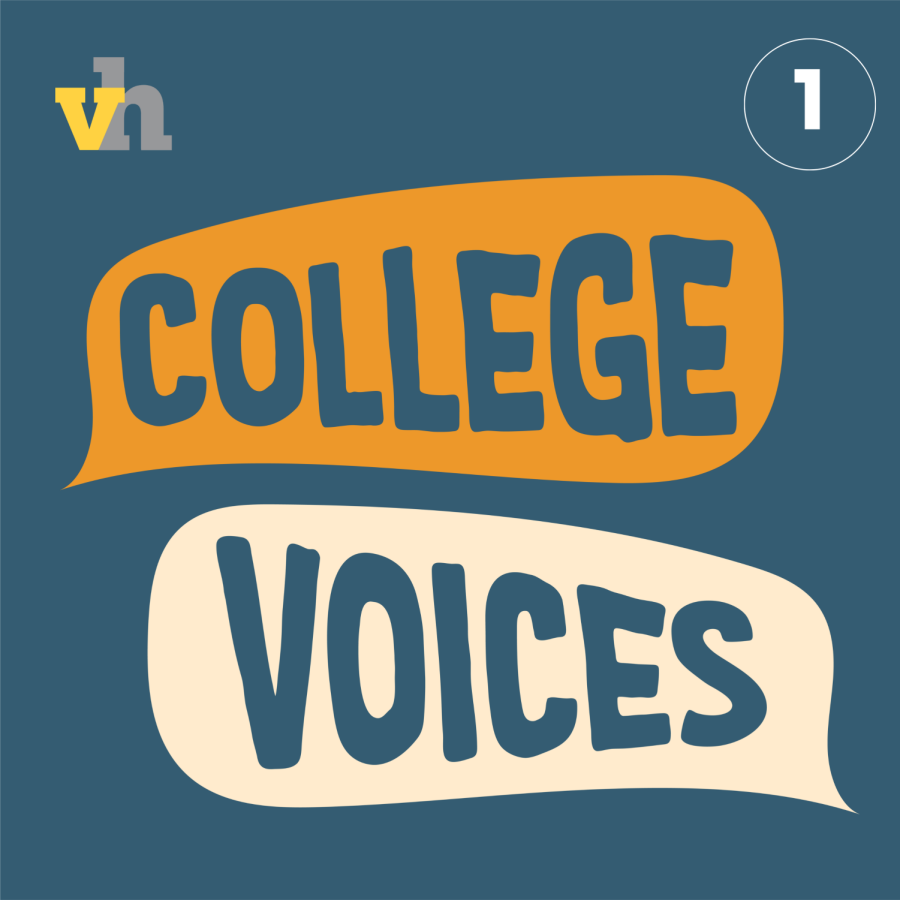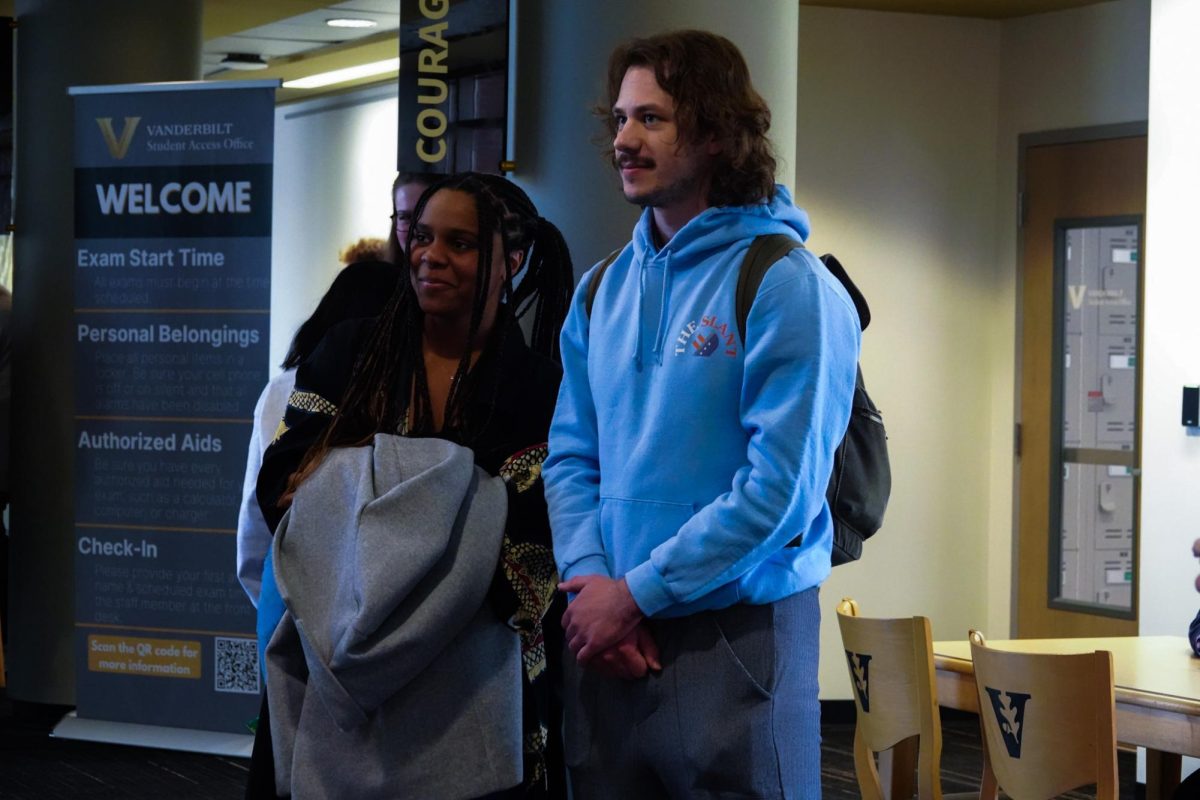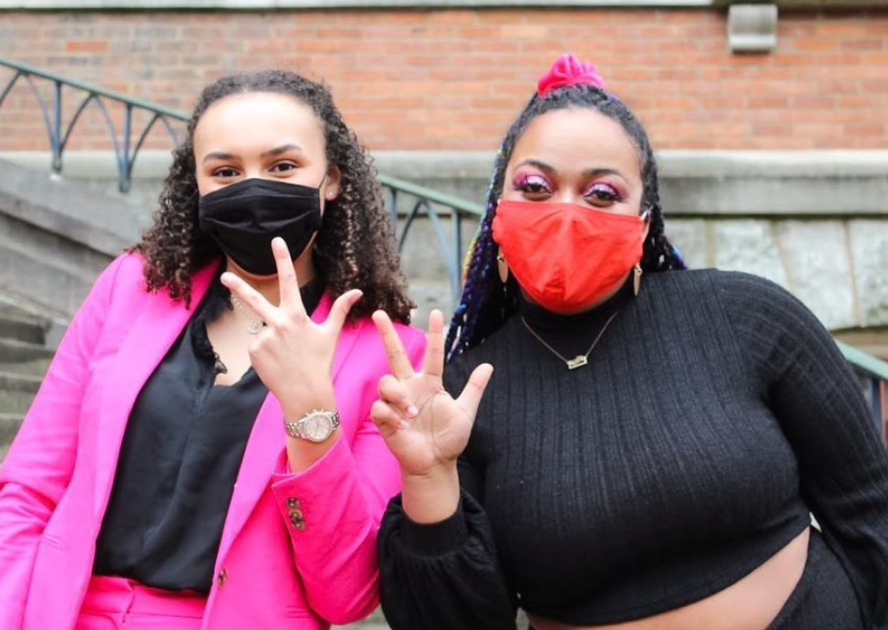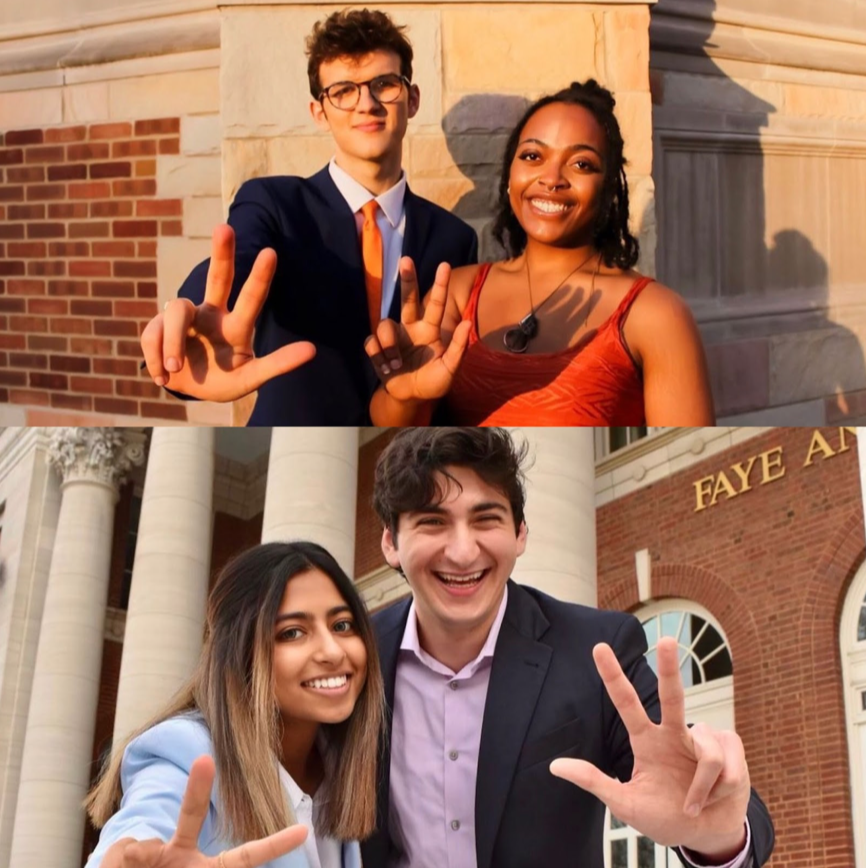The Multicultural Leadership Council (MLC) hosted its General Caucus on March 17 for the 2022 VSG student body presidential and vice presidential candidates. This moderated discussion, co-hosted by senior and MLC President Safa Shazad with junior and MLC Vice President Sean Yang, allowed MLC members to ask the candidates questions.
The MLC Caucus was created six years ago to foster engagement between members of the multicultural community and VSG presidential and vice presidential candidates, expanding the inclusivity of the election process. Shazad stated that, while this event did not occur the past two years because of COVID-19, she enjoyed seeing participation from MLC members again.
“I really enjoyed hosting it,” Shazad said. “Personally, after a year of being MLC president, I know everybody that submitted these questions, and it was just great to see them be uplifted to ask these questions to the candidates. I just think it’s a great time for real community bonding.”
Candidates answered questions about their respective platforms, as well as their specific plans for the upcoming year, if elected.
“I think both teams did really well; it was really polished, and they presented themselves really well,” sophomore and event attendee Alisha Rao said. “It was a really good opportunity to hear more conversation and dialogue between MLC organizations and the campaign.”
The Caucus gave candidates one minute each to present opening statements about their platforms, after which they answered questions pre-submitted by members and representatives of MLC organizations. Then, the Caucus expanded to allow event attendees to ask questions directly to candidates. The candidates then gave their closing remarks on their final takeaways.
Many questions centered around the candidates’ aims to improve advocacy and inclusivity for students of diverse backgrounds. Junior Kayla Prowell, who is running for student body president alongside sophomore Chandler Quaile for vice president, said she and Quaile intend to “keep moving forward” by supporting first-generation and low-income students, if elected.
“The GAP fund is something that VSG administration committee chairs worked really hard this year to make happen. We were able to commit $32,000 to students,” Prowell said. “We want to make sure the average cost is the $2,000 that it takes to apply for grad school. We can cover that.”
Sophomore Ari Sasson, running for student body vice president alongside junior Amisha Mittal for president, said he and Mittal plan to increase universal access to off-campus locations in order to eliminate financial barriers for students.
“We want to make sure that when students are on campus, they can make the most out of their four or more or less years,” Sasson said. “Financial barriers to go off campus are not the same for everybody, and we want to make sure that every single student has a fair shot to make the most out of their time in Nashville.”
Sophomore Arianna Njonge, a member of the Black Student Association, the Vanderbilt Lambda Association and the Indigenous Scholars Organization, asked the candidates how they plan to advocate for marginalized communities outside of election season and outside of their personal affiliations with certain organizations.
Prowell spoke about her experience in advocating for Indigenous students on campus.
“I don’t identify as an Indigenous student, but I know that a big part of what I committed to this year was being a larger part of the Indigenous Scholars Organization, whether that be bumping and supporting materials, whether that be uplifting voices to administration, whether it be just going to events, whether that be talking to Indigenous students to just learn more about different Indigenous cultures,” Prowell said.
Mittal discussed the importance of attending various student events on campus in advocating for all students.
“Since my freshman year, I have loved going to different events, and so any time I had free, I would try to go to events outside ones that I would normally go to, and I continue to do that,” Mittal said. “Beyond that, I have formed individual relationships with people all across campuses who have different beliefs or may have many conflicting beliefs with mine, as well as our spaces on campus, different backgrounds, etc. So I think those individual relationships are really key to understanding what groups they’re involved in and just having those conversations with them.”
Njonge said the candidates’ responses were telling of their characters.
“I think it was really clear which candidates have been doing this work for a long time and have been dedicated to it because of their personal passions and which ones have engaged in it on more of a superficial level,” Njonge said. “Which isn’t to chastise any candidate, but it is to recognize honestly and openly the experience of both candidates as a holder of many marginalized identities.”
The discussion further included recent issues such as Vanderbilt Chabad’s Feb. 23 Rudy Rochman event. In relation to the event, both campaigns emphasized creating opportunities for student communication and conversation.
“We want to make sure that all students’ feelings are acknowledged. So starting with this event [the debate] and moving forward, we want to make sure that we facilitate conversations within small round table groups that don’t just occur once a year and don’t just occur after this one event, but continuously occur,” Mittal said. “So we really want to create those spaces as we mentioned, around tables, or in general just having responsible, inclusive, safe and equitable spaces on campus,”
Prowell discussed specific strategies to advocate for these groups in conversations with administration, acknowledging the need to effectively include their perspective.
“We are making sure that we want to bring these students to rooms within the administration,” Prowell said. “We do not know how it feels to be hurt by these exact comments and these exact words, and it’s not our place to speak for people and groups that we might not identify with.”
The candidates spoke about their current and future commitments to the environment. Quaile emphasized the particular sustainable practices he and Prowell used within their campaign itself.
“It starts with our biodegradable stickers,” Quaile said. “It starts with the fact that all of our campaign materials did come from recycled materials, and I am proud to announce that we are a 100% carbon-neutral campaign.”
Sasson introduced potential ideas to improve recycling on campus during their term in office.
“The biggest trouble for students to recycle is that it’s hard to sort your recycling outside next to a dumpster,” Sasson said. “[Students] have to make a long trek for a recycling bin that some rooms do not even have and, if elected, we will push administration or the push Plant Ops to make sure that every residential building has a single stream recycling capability to make sure that students will recycle as much as possible, reduce their waste and engage campus as a whole to be sustainable.”
Students can vote for presidential and vice presidential candidates beginning March 21 at 8 a.m. CDT until March 23 at 4 p.m. CDT.

